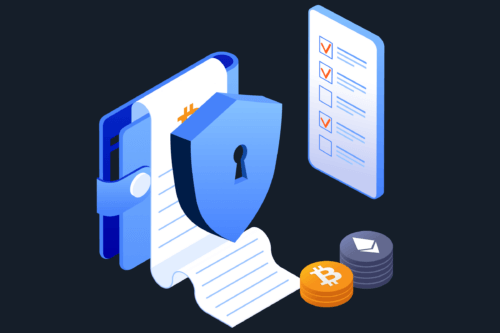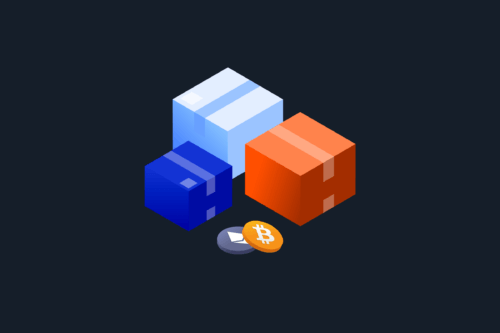
Ledger is a security and privacy powerhouse of the crypto sphere. The French company was founded over a decade ago with a simple mission – providing secure self-custody for the blockchain ecosystem.
Hardware Wallets
Ledger’s flagship products are its hardware wallets. This is where the team made its name, and where it continues to excel. Each of Ledger’s hardware wallets utilise Secure Element chips to store your private keys and drive their secure screens. Because the screens are driven directly by the secure element, you can guarantee the authenticity of the transaction details they show. This can help mitigate the risk of signing malicious transactions.
Ledger hardware wallets can securely store thousands of different cryptocurrencies and digital tokens (including NFTs).

Ledger Live
Ledger Live is the companion app for Ledger Devices, allowing you to access the blockchain and sign transactions. Plus, Ledger also has a dedication to Clear Signing, so apps in Ledger Live display transaction details in human-readable language, guaranteeing what you see is what you sign. The application can be installed on an internet-friendly device (think a desktop or smartphone) and paired with your Ledger device.

Ledger Live offers a secure gateway to the Web3 world. With a hardware wallet connected, you can safely navigate to your favourite decentralised applications, and buy/sell/send assets with security and self-custody.
Ledger Recover
Ledger Recover is a newer innovation from the French tech company that offers a way gain access to their crypto wallet wherever they are in the world—without their seed phrase..
Ledger Recover is a paid subscription service that creates a backup of your wallet access. This means that if you need to access your wallet but don’t have the seed phrase with you, you can restore the wallet on another device and use it immediately.
With Ledger Recover self-custody is still a priority. The service securely fragments and transports encrypted fragments of your backup to three separate backup providers, to make sure no single party can access your wallet with one fragment. This process allows you to regain access to your account via an identity verification process if you need to.
Security Best Practices
Crypto is evolving as an asset class at a rapid pace. However, it is still a strange new world – while comparisons to the Wild, Wild, West are becoming outdated – new investors must exercise caution, especially when choosing self-custody.
Practicing excellent cyber hygiene can be a huge difference-maker when protecting your crypto assets.
Password managers
In this terminally online era, most people have accounts scattered all across Web2 and Web3. So how do you keep all of these passwords in check, especially when you want to responsibly use a unique combination for each account?
Cloud-based password managers are popular – think Google and Mozilla – but present the same issues as “hot” crypto wallets. Because these services are permanently online, they pose a greater risk of hacking than offline alternatives.
If possible, it’s best to keep your Ledger seed phrase (and other crypto-related passwords) in “cold” storage, such as a physical notepad or diary.
Protect your devices from Malware
Keeping your internet-facing devices virus-free is a must for protecting not just your crypto assets, but your privacy too. While hardware wallets protect your assets from this kind of malware software wallets are more vulnerable since they run on internet-connected devices such as your laptop or smartphone. Malware can allow hackers to extract your private keys or password information. It can even change transaction details on your device’s screen, tricking you into giving away your assets.
To avoid these unfortunate instances, make sure to exercise caution when installing new files or clicking on untrustworthy links. Additionally, run regular malware scans with reputable antivirus software to ensure anything that slips through the cracks can be thwarted quickly.
Storing assets with Ledger
A Ledger hardware wallet can improve your security over using “hot” wallets. The Swyftx exchange can be a great way to begin building your crypto portfolio, making it easy to transfer digital assets to a Ledger wallet address.
This gives the advantage of offline storage, a way to thwart the hackers targeting your crypto via the internet even if they have control of your laptop or smartphone.
Keeping a “liquid” amount of crypto on Swyftx’s exchange wallet (or another software) wallet can make it easy to capitalise on a fast-moving crypto market, while storing the majority of your long-term assets on a Ledger device can decrease the risk of your assets being compromised by malicious actors.
Quiz
Disclaimer: The information on Swyftx Learn is for general educational purposes only and should not be taken as investment advice, personal recommendation, or an offer of, or solicitation to, buy or sell any assets. It has been prepared without regard to any particular investment objectives or financial situation and does not purport to cover any legal or regulatory requirements. Customers are encouraged to do their own independent research and seek professional advice. Swyftx makes no representation and assumes no liability as to the accuracy or completeness of the content. Any references to past performance are not, and should not be taken as a reliable indicator of future results. Make sure you understand the risks involved in trading before committing any capital. Never risk more than you are prepared to lose. Consider our Terms of Use and Risk Disclosure Statement for more details.


 Article read
Article read


